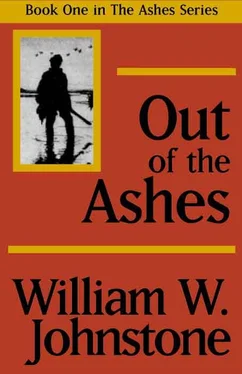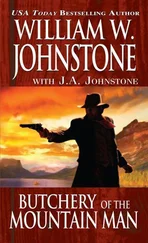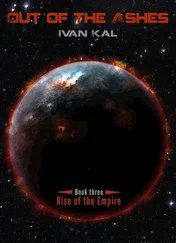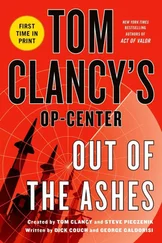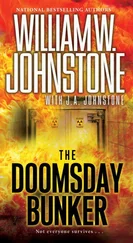Most of the blacks chose to remain where they were, farming the land, working the reopened factories. But the experience had been bitter for Cecil. Cecil and Lila, Pal and Valerie, and about a hundred more blacks left the South and headed west, to the Tri-states. Ben immediately named Cecil as his lieutenant governor and Pal the secretary of state.
“Won’t that irritate a large number of people out here?” Cecil asked. “Naming blacks to high positions?”
Ben had smiled. “You don’t know the caliber of people living in the Tri-states.”
“You’ve been practicing selective population?” Pal asked.
“Yes,” Ben answered. “Amazing how much trouble you can avoid by doing that.”
“And amazing how illegal it is.” Cecil’s reply was dry.
“Maybe out there.” Ben jerked his thumb, indicating the area outside Tri-states. “But not in here.”
“Kasim has decided on guerrilla warfare,” Pal said. “He’s got several thousand men and women behind him, and there are lots more who quietly support what he’s about to do. It’s going to be bloody, Ben, for there is a lot of hate in that man.”
“It’s going to be bloody here, too,” Ben said. “Someday.”
Of the hundreds of towns and cities that once stood in the Tri-states, many were destroyed, having first been picked over; whatever could be used was labeled and stored. The area was returned to land. The residents, if any, were moved to newer, nicer homes and apartments and told to maintain them. There would be no slums in the Tri-states.
The people were pulled together for many reasons: to conserve energy, to stabilize government, for easier care, and to afford more land for the production of crops, as well as to afford better protection for the people in health care, police, fire, and social services.
The elderly, for the first time in their lives, were looked after with care and concern and respect. They were not grouped together and forgotten or ignored. Careful planning went into the population centers. Young, middle-aged, and elderly were carefully grouped together in housing and apartments. Those elderly who wanted to work, and could work, were encouraged to do so. They could work as long as they wished, or until they tired, and then could go home. The knowledge of older citizens is valuable and vast, and Ben knew it. Older citizens can teach so many things—if only the younger people would listen. In the Tri-states, they listened.
In order for this to work, the pace had to be slowed, the grind eased, the honor system restored; the work ethic, in both labor and management, renewed. It was.
Here, for the first time in decades, there was no welfare, no ADC, no WIC, no food stamps, no unemployment; but what there was was jobs for all, and all adults worked. Everyone. Those who would not, because they felt the job offered them was beneath their dignity, or because of laziness, apathy, and/or indifference, were escorted to the nearest border and booted out. They were told not to come back. If children were involved, they were taken from the people and immediately adopted.
It was harsh treatment, and by American standards, totally unconstitutional. But if Ben worried about the legality of it, the worry was not evident in his day-to-day living.
Ben took particular care in the defense of the Tri-states. Heavy artillery was ready to roar; defensive and offensive were tactics worked down to a fine state of readiness. Bunkers and hidden positions were stocked and checked and maintained. Roads and bridges could be wired to detonate, if and when it became necessary, in only a few hours. Radar hummed twenty-four hours a day. Radio-controlled antipersonnel mines were ready to be placed. Tanks were in abundance, and their crews were highly trained. The armed forces of the Tri-states ranked among the best in the world, their training a combination of Special Forces, Ranger, SEAL, and gutter-fighting. Every resident of the Tri-states, male and female, between the ages of sixteen and sixty was a member of the armed forces. They met twice a month, after their initial thirty-week basic training, and were on active duty one month each year. And the training was a no-holds-barred type. Any interference with the day-to-day activities of the Tri-states would be met with brutal and savage retaliation and Hilton Logan knew it. Logan hated Ben Raines, but that hatred was tempered with fear.
“It would cost us much more than it’s worth to take the Tri-states,” the Joint Chiefs told Logan. “Raines has the equivalent of seven divisions—all combat-ready and prepared to fight to the death. His people are better trained than ours. Leave Raines alone, Mr. President. For if we didn’t kill them all, every man, woman, and child, they’d group and fight as guerrillas, and we’d have another civil war on our hands. The only way we could possibly defeat Tri-states at this time is with the use of nuclear weapons, and that is totally out of the question. Another two to three years… maybe. But not now. Not without it costing us dearly.”
Tri-states was left alone.
The government in Richmond, the police, and federal agents watched all that was going on in Tri-states, watched it with awe and consternation, and to some degree, envy. Ben had gathered his people, of all backgrounds, all races, and molded them into a highly productive society, virtually free of prejudice, and totally devoid of crime. And what irritated Logan the most, was that Ben had the best people; the best doctors, the best scientists, the best computer programmers, the best farmers, financial planners, and so on down the line. And Ben’s society was working. That irritated Logan constantly.
The central government knew the people of the Tri-states had aligned themselves with the Indians of the West, working closely with them, and if they moved against Ben and his people, dozens of Indian tribes would join with Ben in the fight, and the central government of Richmond just wasn’t strong enough to fight that—not yet.
In the West, what the remaining tribes of Indians thought they needed in the way of supplies and equipment, they seized, just as Ben and his people had done. And now, with the help of personnel from the Tri-states, the Indian had what he had lacked for years: organization.
The Indians held meetings with other tribes to decide what first to do; and they worked together, putting aside centuries-old hatreds. Where there had once been a scarcity of water, it now moved freely. With the help of “borrowed” earth-moving equipment from deserted construction sites, and engineers from the Tri-states, the flow of water helped irrigate the crops and cool the thirst of a hundred and fifty years of wasted promises, broken treaties, and millions of words from Washington—all lies.
The Indians armed themselves with modern weapons, stockpiled millions of rounds of ammunition, canned goods, blankets, vehicles, spare parts, and all the other items they might need for war—when the white man came to reclaim land that was not his to begin with.
The Indians built new homes, with modern plumbing and running water. They laid down hundreds of miles of water pipe. They diverted the flow of electricity into their own communities and built clean, new, modern schools and hospitals. Many reservations no longer resembled a nightmare from a hobo jungle. For now the Indians had had restored what the white man had taken from them: pride. Now they could live as decent, productive human beings—the only true Americans, really. They could have done all this decades back, had they been afforded the means, instead of being treated like animals.
Teams of doctors, engineers, medics, teachers, and construction workers from the Tri-states worked with the tribes and became friends, welcoming each other’s advice, each promising, if possible, to help the other if and when things began to turn sour and raunchy, as they both knew they would, in time. Time—a very precious commodity.
Читать дальше
